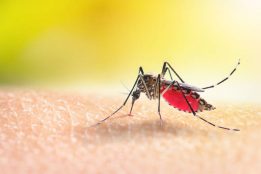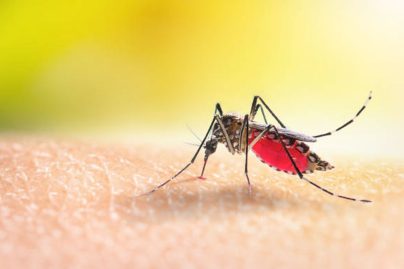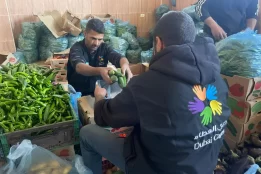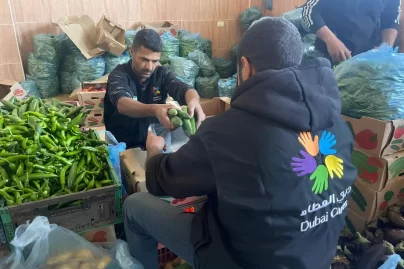Colombian sanctuary offers refuge to scared, orphaned woolly monkeys
Tue 08 Dec 2020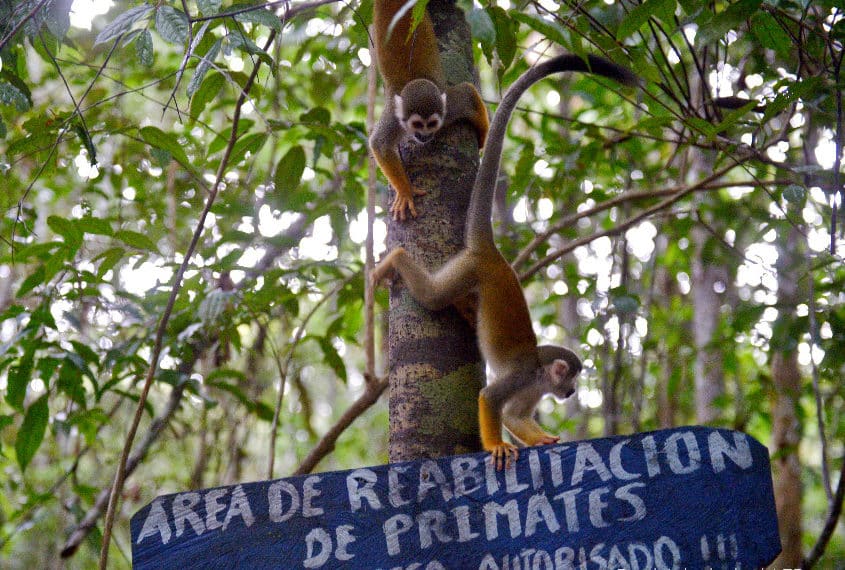
A sanctuary in the corner of the Colombian Amazon is offering a new life to orphaned monkeys left behind by hunted parents — shot down for their meat and pelt.
The refuge run by a local leader, Jhon Jairo Vasquez, cares for these young primates — while gradually changing attitudes in the area — in the indigenous settlement of Mocagua on the banks of the Amazon.
Vasquez has proved to be a father figure for one of the orphans, a three-month-old female woolly monkey, or Lagothrix, he’s named Maruja.
The pair have become inseparable on his hikes through the rainforest, carrying the little primate in a sack on his back.
“An indigenous family ate the mother,” lamented Vasquez, 38, in a word with AFP.
Long prized by hunters for their meat and warm pelts, the woolly monkey is now classified by the International Union for the Conservation of Nature as Vulnerable, appearing on the IUCN’s Red List of Threatened Species.
Coated in thick brown fur with grey appendages, young woolly monkeys like Maruja are often hunted for the pet trade, with their mothers sometimes killed in the process.
Fourteen years ago, Vazquez helped found the Maikuchiga animal refuge located in the middle of the 700-strong Tikuna indigenous community in Mocagua.
Since 2006, he has been trying to convince locals of the damage caused by “over-hunting,” as well as a flourishing illegal wildlife market.
In a slow but sure turn of tide, the Tikunas have begun to develop a taste for eco-tourism and “rehabilitated” hunters have emerged as guides hoping to “protect their wildlife,” says Vasquez.
Yet traumatised orphans continue to arrive in Maikuchiga from other parts of the Amazon. About 800 monkeys have been rehabilitated since the refuge first opened its doors at the Triple Frontier — a spot where Peru, Colombia and Brazil meet — with a long history of woolly-hunting.
Sometimes the monkeys are shot down for ritual purposes. The adult’s flesh is roasted on a wood fire and the babies are sold as pets or forced to entertain tourists visiting the indigenous communities of the region.
The lucky ones are rescued by Corpoamazonia, the Colombian government agency in charge of environmental protection, based in nearby Leticia.
Luis Fernandez Cuevas, its director, said 22 young primates have been recovered since 2018.
Sometimes these are the result of “voluntary surrenders” by people who claim to have found them by chance, in order to avoid an investigation for trafficking or illegal possession of the animal.
In Colombia and neighboring Brazil, it’s illegal to remove any animal from the wild to keep as a pet.
Vasquez looks after five other primates here: the woolly monkeys Helena and Abril, an owl monkey (Aotus) called Papinanci, and two squirrel monkeys (Saimiri Sciureus), Mochis and Po.
The animals have to slowly adapt to the wild, to know how to recognise “the sounds of danger” from the jungle and the habits of predators.
Rehabilitation for these monkeys comes to an end when they leave the 4,000 protected hectares of Mocagua.
Little by little, they find their way through the trees and move in packs, learning what their mothers could not teach them.
[Sourced from agencies]

 Apr 20 2024
Apr 20 2024
